What impressed me the most in that meeting was a Japanese sister. As she rambled on in her broken English from one topic to the next, I struggled to make sense of what she was trying to say. But then she spoke two words that captured my attention: Expect miracles. Nourish your thinking I have no idea why she said those two words. Perhaps she was referencing President Nelson’s address from the last Conference on spiritual momentum. Perhaps she was talking about something else related to miracles. Or perhaps she was talking about something completely unrelated and the Spirit prompted her to say those words because I needed to hear them. I say I needed to hear them because they captured my attention. And as I began pondering those words and remembering what I said about them in a recent episode of this program, I immediately felt prompted to make them the focus for this episode of Joy in the Journey Radio. So perhaps there is someone out there who needs this message. Regardless of the need, I do believe this message is important for all LDS singles to review on a regular basis. We need to nourish our thinking with better assumptions, better perspectives, better attitudes, and better self-talk. The idea of expecting miracles encompasses all four of those elements. Reformat and reboot For example, too many LDS singles assume the future will be just like the past. They place so much emphasis on the choices others make, they do not perceive the power inherent in their own choices. A discouraging outlook encourages a despondent attitude. And all of these elements then find reinforcement in self-talk: “What’s the point of trying?” “Why would anyone choose me?” “I’m not good enough.” “I’ll never be loved.” All these messages played on autopilot via habits of thinking reinforce the faulty assumptions, the diminished perspectives, and the failing attitudes that will never lead to success. Expecting miracles reverses all that. Expecting miracles in your life assumes miracles can and will come to you. Expecting miracles exchanges the perspectives focused on the past for ones focused not just on the future but on a future that’s very different from the past. Expecting miracles encourages an optimistic positive attitude. And expecting miracles encourages uplifting self talk: “I’ll keep trying because I will succeed.” “My miracle will choose me.” “I’m more than good enough for my miracle.” “My miracle will happen because I’m already loved.” There’s a night-and-day difference between expecting miracles and the less effective ways of thinking many LDS singles choose to tolerate. Many so choose because they simply aren’t aware of the difference. But having that awareness, why would you choose not to expect a miracle? Why would you cheat yourself of the glorious best life you could have? Position yourself better Of course, miracles are more likely to come and are therefore easier to expect when you get your game on. Put yourself in a good financial position. Serve faithfully in your Church calling. Take care of your responsibilities, including those involving self-care. These changes likely won’t come overnight, but every effort to move in that direction moves you closer into a space where miracles can more easily come. My friend provides a good example. His real interest in attending that Sunday School class was a special “person of interest” (as he calls her). During the drive back, he told me they’d met only one month ago. I was surprised to hear that. Given the way they hugged each other in the parking lot before leaving, I thought they’d known each other longer. But apparently they just hit it off really well. I’d call that a miracle. So expect miracles in your life. Believing in and opening yourself up to possibility can improve your probability of success. By working as you can on improving yourself and your situation, you can move yourself into the space where your miracle can more easily come. That miracle can be the door that swings your best life wide open to you. And that will bring your more joy in your journey.
0 Comments
That said, many of us are still taxing ourselves. We are by nature social creatures, so it’s natural to respond to a crisis by nearing ourselves to others. Yet the current crisis keeps many of us physically apart. And without some plan to provide for needs, that separation is taxing many beyond their capacity. Focus on ability  We’ve discussed before the basic areas of life, what I call the spirit, the heart, the mind, and the body. Regardless of the names you employ, these areas each have their own needs, which will tax anyone’s reserves when left unmet. And the faith that optimistically inspires us to see beyond the current crisis can guide us to solutions amidst the current crisis. We achieve that result in large measure by answering this question: “What can I do?” Too many of us, yearning for a return to normal, seek after what we’d like to do had the pandemic not turned the world upside down. But that thinking won’t help us thrive in our new world. We must adapt or die. To thrive in a new reality, we must change our thinking to match the landscape. For example, before the pandemic hit, I was investigating exercise options. Then the pandemic eliminated the gym as an option. But instead of wallowing in my inability, which would just lead me to inaction and its attendant reality lacking results, I focused on answering “What can I do?” That question led me to using my own body weight for strength training and walking in my neighborhood for cardio. That combined with changes in diet have led to my first real weight loss success in a long time. Get your plan  In like manner, we can ask “What can I do?” to address any need in life. By focusing our attention on what we can do, we empower ourselves not only to conquer the challenges before us but to do so with a smile-laden gusto. We really can have joy in life regardless of our circumstances. That power to transcend our troubles resides in agency, God’s gift made meaningful by Jesus Christ. His Atonement makes it possible to triumph over sin and death, obstacles that separate us from God. Without that Atonement, our overcoming any obstacle in this world would have no meaning. We would all unavoidably perish (Alma 34:9). Of course, such a key component in our eternity did not come about by chance. It was part of a plan provided before this world was. What we see now created temporally God first created spiritually (Moses 3:5). Following that example as we answer the question “What can I do?” will lead us to the plans we need to meet our needs during the coming months. Rise above the challenge  With so much unknown at present about coronavirus, we can expect the current situation of sequestering and social distancing to last at least through summer. Do you have the plans and the means in place to meet your own needs during that time? When you fail to plan, you plan to fail. But you don’t have to fail. You have a choice. You have power within that choice to change your attitude and how you think. And when you change how you think, you change your life. You can feel real joy regardless of what negative or pessimistic circumstances surround you. Don’t tax yourself by failing to plan appropriately for your changed landscape. Ask yourself, “What can I do?” and then partner with the Lord as you answer that question. Those answers can structure a plan for meeting your needs for as long as the crisis lasts. The storm of pandemic may rage on the outside, but you can live with faith, optimism, and confidence on the inside. And that will bring you more joy in your journey.
 This past Sunday I decided to attend a special singles meeting in my stake. I didn’t even know about the meeting until I went to church and saw the announcement in the bulletin: Special Meeting for singles tonight at the stake center. My question then is probably your question now. What’s a “special meeting for singles”? I had no interest in another fireside, because typically they’re just another helping of Sunday School. I get enough of that at church. But a “special meeting”? Needless to say, my curiosity was piqued. And so I donned my white shirt and tie later than usual and, at the appropriate time, made my way over to the stake center. As I walked in the door, a gentleman greeted me and asked if I were here for the fireside. Instantly I cringed. But, tampering down the anxiety attack within me, I replied, “Yes, I’m here for the meeting.” This brother directed me to the Relief Society room. Singles activities are often sparsely attended, but I guess the same influence that worked on me worked on others. The room was packed! I had to take a seat in the front corner of the room. Start by listening  I soon learned the purpose of the meeting. The stake presidency was looking through the responses to the recent survey — wait, survey? I thought to myself. What survey? I never got told about any survey! — and now they wanted to take the opportunity to listen. Hold up! Listen? You actually want to listen to us singles? Hallelujah! There is a God, and He hears and answers prayers! The meeting then became something free form, with individuals sharing feelings and perspectives on LDS singles life and what singles need. I of course have a lot to say on those topics. But I decided to listen myself. I wanted to learn what concerns were most prevalent so I could make my response more targeted to what people needed to hear. But I never got the chance to share anything. Many expressed frustrations with the family-centered LDS culture and with leaders who because of ignorance or apathy or whatever other reason aren’t sufficiently supporting singles. By the time I grasped the main themes of others’ comments, the stake president ended the meeting. Apparently there was another meeting to attend. But he did offer some closing words of encouragement before ending the meeting with prayer. Raise your voice  Not having the chance to share my voice, I quickly approached the stake president as soon as the prayer had concluded. As I shook his hand, I thanked him for listening. Not many leaders actually stop to listen, and I made sure he knew what a rarity his approach unfortunately is. We spoke briefly about what had just transpired, and I assured him that solutions do exist for all of the frustrations and negative emotions that had just been vented. Those solutions we can find in the restored gospel of Jesus Christ, but it takes a new way of thinking to see them. Most people aren’t taught to think in those ways, which is part of the reason why I have my blog and radio show. I then asked if it were okay for me to email some information that could bring added perspective on others’ comments. He consented, and with that, I had my mission. I knew what I needed to do. Act in faith 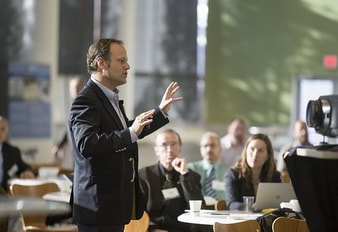 I rushed home and began writing that email. After listing all of the concerns I could remember from others’ comments, I organized those concerns into themes, and then planned my response. Because much of my response mirrors what I’ve already said on both my blog and the radio show, I decided to provide him with links to the relevant posts and shows. Even with the links, I quickly amassed four pages of material. I’m working on paring that down so it won’t overwhelm. I still can’t contain my excitement at what transpired. Indeed, I believe many are unaware of the wonderful opportunity within the grasp of leadership and the singles they want to serve. And I feel especially blessed to have leaders who chose first to listen to the people. Listening opens the door of possibility to establishing the support network that will improve the lives of singles and help to fill their needs. If you’re in a leadership position with stewardship over the singles, I urge you to listen to the people. As you listen, you’ll set the foundation to establish the support network necessary to minister most effectively to LDS singles. As that support network grows, more and more LDS singles will have more and more of their needs met. And that will bring more joy in your journey.
 This has been called the age of the knowledge worker. The great heroes of the age are all intellectual giants. We elevate those with superior intellect to the top of the mountain and then stand at the base looking up in awe and admiration. That's why I know it sounds amazing. How can we be hardwired not to think? Well, for most of what we do, automation just makes sense. Have you ever had to use your brain all day? Remember how your head ached? Why would your brain hurt if it was doing what it’s designed to do? It wouldn’t. Your head aches because it spent too much time operating outside its intended design. Understanding how you’re designed to work can help you live your best life more easily, avoiding the frustration that attends life. It all starts by understanding that you’re hardwired not to think. Life on autopilot  Imagine what life would be like if you had to think about every breath you took in order to breathe. You wouldn't have time for anything else. So yes, automation has its benefits. But automation also has its detriments. Automating means doing that for everything. We’re designed to operate out of a set of instructions. And that set of instructions is habit. Because most of what we do is automated and the instructions for that automation are our habits, we act out of habit for most of what we do. And here’s the kicker: That means we do what we do without really thinking about it. Notice our design is just to follow instructions. There’s no evaluation of the instructions in the operational design. We’re hardwired to follow a set of instructions, not pick and choose which instructions to follow. This scenario sets the stage for much frustration in life. We’ll follow the instructions in habit regardless of the effect those instructions have upon us. Thus, many go through life experiencing failure after failure when they’re simply acting out of less effective instructions encoded in their habits. Those who aren’t self aware enough to realize what’s happening will just keep doing what they do without thinking about it. In many ways, we really are our own worst obstacle. Life by intention  But it doesn't have to be that way. The same process that produces a negative effect can produce a positive one. You just need to replace the less effective instruction with more effective instruction. You need to adopt a better habit. This is more than just quitting a bad habit. When all you do is quit a habit, your brain (hardwired to have a habit) goes looking for one. And the default selection is always the last habit you had. So to get rid of a less effective habit completely, you must replace it with a more effective one. To do that, live life intentionally. Consciously choose what you do. To go where you want to go, you must steer the ship of your life. You must consciously choose your direction. You must live with intention. I know that sounds simplistic, but so many of us don't do that. Again, we’re hardwired not to think. That means our default selection is to follow a habit rather than make conscious choices. Many who just “go with the flow” find their lives unsatisfying. But what they’re really dissatisfied with are their habits. Life with joy  What does all this have to do with LDS singles life? Everything! Many LDS singles dissatisfied with their lives don't realize they’re really dissatisfied with their habits. They keep looking outside themselves for why they're single, when the answer they seek is really inside them. You don't have the results you want when you don’t do what you need to do. Instead of blaming others when your life isn’t what you want, own your life and blame yourself. Take ownership of your choices and the role they played in leading you to the life you have now. Examine your habits and replace less effective instructions with more effective instructions. In short, reformat and reboot yourself. When you own your life and take charge of your choices, you position yourself for success. You can consciously eliminate the less effective habits you follow without thinking — habits that keep you from the success you want — and replace them with more effective habits that will deliver the results you desire. It's not an overnight ordeal, but if you consistently stay at it, you can start seeing changes in your life. You can see yourself moving towards the blessings you desire. When you give your all to that process of continuously trying to incorporate into your life what’s right for you, you'll find happiness. And that will bring you more joy in your journey.
 If you’re struggling with LDS singles life, and particularly with dating, then you need to examine your attitude and your approach. Your results in life always come from what you do. And what you do inside yourself (your attitude) and outside yourself (your approach) comes from your choices. We’re all choosing the life we want. Many LDS singles without the life they want need to adjust both attitude and approach. We touched on some aspects of a more effective approach two weeks ago when we discussed the proper role of revelation in dating. Then last week we addressed aspects of a more effective attitude. Neither of these discussions was comprehensive, but they do contain good starting points for positive change. Here’s another aspect of both attitude and approach: Many LDS singles make assumptions about their world which their habits then use as the basis for action. But it’s like the old saying goes — garbage in, garbage out. A more effective attitude and approach begins with more effective assumptions. Everything goes back to the way you think. That’s why a periodic reformat and reboot is good; you need to step back, examine your assumptions, and clear your head of anything faulty or less effective. Question your assumptions  Sometimes what we think is significant really isn’t. Many LDS singles reject opportunities for success because their assumptions about what was important or even essential guided them along a different path. Their assumptions blinded them into thinking what really was an opportunity wasn’t an opportunity. For example, most singles think the age of their special someone is within 5-6 years of their own. Why? Because they assume that’s what they should want. But often it’s not experience guiding them to adopt that assumption; they’re just being good “sheeple” in following the herd. Thankfully, President Hinckley’s parents didn’t follow that assumption. They were separated by 13 years of age. And their union produced a prophet! Life will never fully unfold for you until you start questioning your assumptions. When you let go of what you think you need but really don’t, you open yourself to more possibility. And that increases your probability of achieving success. Don’t discount the good  Many LDS singles interact with other singles only insofar as it serves their agenda. Once someone no longer serves their agenda, they cease all interactions with that someone. This faulty approach is itself based on faulty assumptions: Spending time and money on people who won’t progress with you towards marriage is a waste. That assumes people matter only insomuch as they help you achieve what you want. In the end, all that really matters is getting the goal. When you spell it out, it’s not hard to see how ridiculous those assumptions are. People have inherent worth as children of God. Everyone matters. Yet many of us don’t have the self-awareness necessary to realize how ridiculous our own assumptions are. Yes, lovers should be friends first. But friendship alone has intrinsic value. Who couldn’t use more support in facing the challenges of LDS singles life? Every relationship you have, romantic and otherwise, offers knowledge and experience that can help you have a better relationship with that special someone when that person comes into your life. By discounting the good many potential friends have to offer, you make life harder than it needs to be. And you might be staying single longer than needed as well. Look for the flecks  Elder M Russell Ballard once told the story of a young man who went to California during the Gold Rush to seek his fortune. He eagerly panned for gold nuggets like the ones he had heard about before coming west. But after weeks of effort, he had found nothing. Then one day he met an older gentleman who had spent many days prospecting and found enough gold to fill a small bag. The young man was discouraged to learn that gold was not the nuggets for which he searched but rather many tiny flecks. After hearing his discouragement, the older gentleman responded that those flecks had made him a wealthy man. If we assume the eternal companion we seek is a gold nugget, then we may be joining that young man in disappointment. Most people aren’t gold nuggets; they have imperfections aplenty. Yet they also have flecks of gold mingled among those imperfections. Choosing to give those gold flecks more weight than the imperfections can make us wealthy indeed. When you clear your head of faulty assumptions, you can more easily meet with your success. Embracing all experience opens the door of possibility, increases your probability of success, and helps you to find much more than you ever imagined you could. And that will bring you more joy in your journey.
 The many changes announced in the most recent General Conference bring a feeling of starting a new chapter in LDS history. I’m not certain most of us anticipated such sweeping announcements. Yet those of us with faith will embrace the new reality and run with it. In like manner, life brings to each of us sweeping, unanticipated changes. Perhaps you’ve reached a certain age without getting married. Or that marriage you thought would last forever won’t. Or you experience a job loss. The variety of surprises life can bring has no end. And they often come when we least expect them. I believe the best response to unanticipated, unwanted events is the same best response to the most recent General Conference. We need to have faith to embrace the new reality and run with it. And when that new reality radically differs from our past, we need to let go of the past and start again. Make it work  Letting go can be one of the most difficult challenges in life. You like the way things were. You were comfortable. And you don’t want to have the extra work changes often requires. Yet successful people never confront life as they wish it would be. They confront life as it really is. They do the best they can with what they have. And they make it work. And what exactly do you have? You have your Heavenly Father, with Whom you can counsel through prayer. You have the Lord Jesus Christ, Who suffered so you could have new life. You have the Holy Ghost, Who can provide revelation, comfort, and strength. You have angels and the powers of heaven upon which you can call when you keep your covenants. You have family, friends, and the Church which can each provide their own measure of support. Considering what you have, is there any challenge you cannot overcome? As the apostle Paul declared, “I can do all things through Christ which strengtheneth me” (Philippians 4:13). Let it go  Letting go of the past is often the first step in embracing a new reality. It can also be one of the most difficult. Earlier in my life, I had a really sweet job. I worked remotely for an East Coast company while living on the West Coast. I had complete mobility both with my physical location and (within reason) my schedule during the day. I also made some good money with the gig. I had residences in two different states and traveled between them at will. Life was sweet. Then came the word from HQ. Financial conditions necessitated massive layoffs. Half of my peers would lose their jobs. I thought my superior job performance and delivery record would keep me safe. Then I got my notice. I was the first to lose his job. The shock left me speechless. For some time thereafter I was paralyzed. That paralysis evolved into a deep depression as other life events knocked me down. You can tell I’m not depressed today, so what happened? How did I leave my depression? I took action. I started doing what the Lord inspired me to do, whatever it was. Completing even small tasks built my confidence and helped me to regain my faith in myself and my future. Slowly but surely, with the help of the Lord, I began to process of rebuilding my life. I started again. Embrace reality  Accepting that whatever bad thing happened to you actually happened to you requires a great deal of courage. But holding on to a past that doesn’t resemble the present reality is just extra baggage holding you back from moving forward in life. Sometimes you need to take a new approach. And sometimes that new approach involves starting again. I’ve had to start again in my own life at least seven times. That’s just the number of unanticipated change events from my life that come quickly to mind. I might find more if I really stop and think about it. Still, it’s fair to say I’ve got a fair amount of experience with starting again. Here’s one of the lessons I’ve learned — starting again usually seems daunting and overwhelming at first but always gets easier once you dig in and start embracing the change with a positive attitude and effective actions. It’s also helpful to remember everything you have. As I mentioned earlier, you have many in your corner rooting for you because they love you and want you to succeed. You can conquer any life-altering challenge before you when you start again. Embracing the change and making the most of it will help you to become everything your Heavenly Father wants you to become. And that will bring you more joy in our journey.
 This past weekend I’ve had the best vacation I’ve ever had in my entire life. Most people hearing that declaration will wonder where I went to have such a great time. But my vacation was great not so much for where I went as for what I did. I went to Afton, Wyoming. “Why would you go there?” some of you undoubtedly wonder. “There’s nothing there.” To which I answer, “Precisely.” Recently I’ve felt my life dead end in so many ways. I wanted to search my soul and think deeply about my life. I wanted to re-calibrate myself with a sense of hope that all isn’t lost for me. And I wanted a game plan for taking every part of my life to the next level. For me, that’s all best done surrounded by mountains, fresh air, and as few people as possible. Wyoming’s Star Valley fits that bill to a T. Start with the temple  My first order of business was a session in the Star Valley temple. This has to be the absolutely smallest temple I’ve ever seen. There’s only one endowment room, one sealing room, and four sessions per day. I arrived hoping to join the last session. Every seat was already reserved, so the front desk called someone to see what work I might do. I took a seat and waited patiently. Very soon, a temple presidency member came out and greeted me. We shook hands as I expressed my hope in doing a session. Instantly this kind man put his arm around my shoulder. He thanked me for coming in a way that made me feel truly welcome. Then, turning to the attendant at the front desk, he instructed a space be made for me to attend a session. He then offered to show me where to go. I accepted, although the building is so small I couldn’t possibly get lost. Early during my session I began to feel a quiet confidence the blessings I desire are still available and the Lord will walk with me towards their attainment. What a wonderful start to my vacation! Get down to the nitty gritty  I spent the next four days writing in a Moleskine notebook. I wanted to take my life to the next level, and I had a plan for how I would proceed. I started by listing every part of my life I wanted to take to the next level — my spiritual life, my relationships (both ones I had and ones I wanted), my career, my own businesses, my residence, my finances — literally everything. Then for each of those individual items, I followed a five step process:
I followed these steps for every individual part of my life, so little wonder I filled 71 pages in my notebook. From those pages I extracted the individual action items (271 in all) that get me started taking my life to the next level. Feel the power  Admittedly, 271 action items is a lot, but I need do only one item at a time. And having lots to do is great. It gives hope I’ve got endless opportunity to turn my life around, a realization that brings with it great empowerment. I returned home feeling very powerful and very hopeful I can secure eternal blessings and live the life I want. I now have a new attitude. In that sense, my vacation was truly recreational because I came back re-created. This truly was the best vacation I’ve ever had. If you feel your life has approached a dead end in any or all its aspects, find your own quiet place to search your soul and get back to basics. You’ll find you can do so much to turn your life around. And that feeling of empowerment will bring you more joy in your journey.  Last week I extolled our need to choose Christ when life takes unanticipated turns. No matter how bereft or lost you may feel, Christ can transform your life into something meaningful and joyful. Part of that transformation involves your sense of identity. Although many LDS singles know in their mind they’re children of God, many of them have yet to know that truth in their heart. And getting to that deeper level is essential to weathering the storms of LDS singles life with joy in our journey. For example, many LDS singles see themselves and others through the lens of circumstance. Most people, single or married, do this habitually because others’ actions teach them so to act. Yet the perspectives embodied in many of these actions serve more to hinder our progression towards eternal goals than to help. Christ offers ennobling perspectives. To gain those, we need to choose to think in new and different ways. And that means seeing ourselves and others with greater clarity. You are not your body  Everyone knows how your body is shaped or groomed isn’t the real you. Yet many LDS singles — men and women — use physical appearance to filter who they befriend and date. These actions clearly communicate you must be attractive to be loved. And many of us feel very unloved. Of course, most prefer interactions with physically attractive people. Improving your physical appearance can increase your chances of having the interactions you want. But people are also hardwired to respond positively to a great attitude. I’m always inclined to know more about someone who displays generosity and cheerfulness towards me. You are not your body. You are the character you choose to embrace. You are not your job  It amazes me how some singles accept not getting to know someone who happens to be unemployed. That’s like saying it’s OK to divorce a spouse who loses a job. “What? You lost your job? Well, time to find someone else. See ya!” That’s absolutely ridiculous. And yet many of us have no qualms about filtering others with that ridiculous standard. Those actions clearly communicate you must be occupationally successful to be loved. And many of us feel very unloved. Of course, people typically prefer interactions with successful people. Improving your career can increase your chances of having the interactions you want. But people are also hardwired to respond positively to a great attitude. I’m always inclined to know more about optimistic people. You are not your job (or lack of one). You are the energy you choose to radiate. You are not your bank account  On a related note, many LDS singles use wealth to filter who they befriend and date. These actions clearly communicate you must be financially secure in order to be loved. And many of us feel very unloved. I can understand the allure of security, but it’s all facade. Marrying the right person can help us become who we need to become. That’s a life more fully lived than simply not having to worry about how to pay the bills. Of course, we all want to associate with successful people. Improving your financial situation can help you to have the interactions with others you want. But people are also hardwired to respond positively to a great attitude. I’m always inclined to know more about someone who sees the opportunities rather than the obstacles. So are others. My bank account has seen highs and lows, but the best romantic relationships of my life occurred during the lows, not the highs. That’s because my confidence, the confidence others find attractive, has nothing to do with my bank account. How I choose to approach life speaks volumes about who I really am. You are not your bank account. You are the confidence you choose to exhibit in your life. Stay firm  Not everyone will choose this perspective. That’s OK. Their use of traditional filters tells you exactly who they are, making it easier for you to filter them from your consideration. When high ideals inform your daily actions, it’s much easier for others to see and focus on your best you rather than any deficiencies. In short, it’s easier for you to succeed. It’s also a more enjoyable way to navigate LDS singles life. Improving how you think improves your approach to life. Making conscious choices to communicate and reinforce gospel ideals with your actions provides more joy in everyone’s journey. You can create a rich life through meaningful contribution. You are not your circumstances. If you think you are, reformat and reboot yourself. You are a child of God with infinite worth and potential. Start seeing that in yourself, and then others will be able to see that more clearly too.
 LDS singles often confront challenges of identity. Different cultural aspects have influenced us in adopting habitual ways of thinking. That includes how we identify ourselves. We all respond to those habitual perspectives. And it can be very easy to get discouraged or depressed when your efforts to improve do not yield the results you want. But you don’t need to feel that way. Let’s address some identity issues that LDS singles face. You are not your job  Some singles filter their interactions with other singles based on their occupations. If you are unemployed, you might find some don’t want to befriend you. After all, what good are you if you can’t bring home the bacon? Acting on this attitude sends a clear message to those who struggle financially that they must have a very successful occupation in order to be loved. Many of these people feel very unloved. Of course, you should do what you can to improve your employment situation. But you should also improve the way you think. Yes, people typically prefer interactions with occupationally attractive people. But they are also hardwired to respond to generosity and cheerfulness. My first job? Busboy in a Mexican restaurant. What does that say about who I really am? Not a whole lot. How I approached that job, however, says a ton. Never being late, always doing what I was asked, and always being attentive speaks volumes about who I really am. You are not your job (or your lack of one). You are the qualities you choose to exhibit through your actions. You are not your body  How your body is shaped or groomed is not really who you are. Yet many singles filter their interactions based on physical appearance. Acting on this attitude sends a clear message that you must be attractive in order to be loved. And many “less attractive” people feel very unloved. Of course, you should do what you can to improve your appearance. But you should also improve the way you think. Yes, people typically prefer interactions with physically attractive people. But they're also hardwired to respond to people who project generosity and cheerfulness. If all you know about me is the way I look, you won’t think very much of me. I’m okay with that. It puts me in good company (see Isaiah 53:2-3). But it doesn’t say a thing about who I really am. Can you tell the sacrifices I have made to be true to the restored gospel by the way I look? Not really. The story of my sacrifice radiates my desire to be true and faithful regardless of how my life does (or doesn’t) work out. That speaks volumes about who I really am. You are not your body. You are the energy that you choose to radiate to those around you. You are not your marital status  Many Latter-day Saints (both single and married) unknowingly grant acceptance and validation to those who have experienced the subcultural rite of passage we call temple marriage. Everyone else is therefore less or deficient. Acting on this attitude sends a clear message to LDS singles that they must be married in order to be loved. And many singles who buy into this belief feel very unloved. Of course, you should do what you can to improve your situation. But you should also improve the way you think. Yes, even people in the Church will not always accept you. But they're also people, and like most people they're inclined to respond to generosity and cheerfulness. You create meaningful life through contribution. The marriage ceremony doesn’t change who you are fundamentally. But whether you contribute positive attributes and energy into the lives of others will. You are not your marital status. You are the contributions that you make to those around you. Enjoy the richness of life You will enjoy your life more when you reject the faulty idea you're your circumstances and truly embrace the correct idea that you're a child of God. Many of us don't know what that really means, due in part to the message our actions send.
Many times our actions portray apathy or exclusion rather than love and inclusion. When you truly desire to follow the Master, you reject the herd mentality and seek to satisfy the needs of others. You create a rich life through meaningful contribution. You are not your circumstances. If you think you are, you need to reformat and reboot yourself. You are a child of God with infinite worth and potential. Start seeing that in yourself, and then others will be able to see that more clearly in you as well.  Sometimes the renewal we need requires us to dig deeper. When my computer doesn’t work right, I try restarting it. If the problem persists, I look for a virus. If I find one early enough, I remove the offending file. However, if the virus has corrupted the operating system, I first have to reformat the hard drive and then reboot. This operation replaces everything, erasing all my data and then restoring fresh code as though the machine were brand new. In a similar manner, many of us singles need to reformat and reboot ourselves. Our operating system is filled with so much bad code — misperceptions, faulty beliefs, cultural perspectives, and other influences based upon erroneous ideas, defunct ways of thinking, failed paradigms — that we cannot live life effectively. If your life operating system is corrupted, then your life will leave you frustrated or depressed (and very often both). But it doesn’t have to be that way. Get to the root 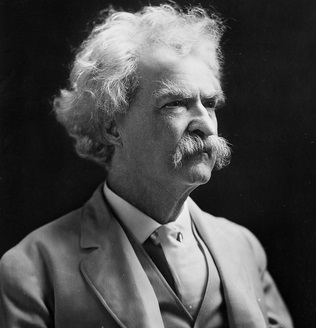 Mark Twain once said, “You can’t depend on your eyes when your imagination is out of focus.” You must consider that some of what you have always thought was true may in fact be false. Otherwise, you can’t depend on your eyes to see the whole problem, especially if the root of your problem lies in an erroneous belief. In 1833, the Lord revealed to the Prophet Joseph, “And I give unto you a commandment, that ye shall forsake all evil and cleave unto all good, that ye shall live by every word which proceedeth forth out of the mouth of God” (D&C 98:11). That is exactly what reformatting is, taking out all that is bad and replacing it only with good. And that bad is not just in what you say and do. It is also in how you think and perceive the world around you. Now if you're thinking you don't need this because you've been keeping the standards of the Church and honoring your covenants and all that good stuff, I got two words for you. Think again If you don’t reformat and reboot yourself, I guarantee you will simply follow the programming contained in your habits and keep having the life you have now. Why do I say that? Your brain is biologically hardwired to follow instructions, much like a computer. Most of your beliefs, erroneous or not, operate in the background. You act on them without thinking about or realizing what you're really doing. If you don’t have the life you want, then you need to change what you're doing. Period. Insanity is expecting to get different results while doing the same things over and over again. And doing things differently means thinking differently, both about yourself and the world around you. That means reformatting and rebooting yourself. If you can’t see the way out of a life filled with despair and anguish, it's not because there's no way out. There is a way out. So if you can’t see the way out, it must be because erroneous ideas unduly influence how you're seeing the world . That’s why you first have to understand how false ideas cloud your vision. That’s why you have to reformat and reboot. Peaches are not apples  If you want to eat apples, then planting peach trees is not the best idea. Not that there's anything wrong with peaches. They make great pie and cobbler, and peaches are excellent with pepperoni on pizza! But peaches aren’t apples, so if you want to eat apples, plant apple seeds. That truth may seem obvious, but few singles actually apply it to their lives. When we find our lives are not the apples we wanted, we rarely ask, “What seeds did we plant?” Far too often we instead play the victim and assign blame outside ourselves. But if we dug deep enough within our own selves, we would see our habits are so riddled with bad instructions that left alone those habits will continue to deliver us undesired results, just like a computer operating on faulty source code. The way to fix yourself is the way to fix that computer. You need to reformat and reboot. You need new instructions — more effective habits — so that you'll automatically choose to act in ways that lead to the life you want without thinking about it. How do you do that? Well, that’s what next week is for! :) |
Author
Howdy! I'm Lance, host of Joy in the Journey Radio. I've been blogging about LDS singles life since 2012, and since 2018 I've been producing a weekly Internet radio show and podcast to help LDS singles have more joy in their journey and bring all Latter-day Saints together. Let's engage a conversation that will increase the faith of LDS singles and bring singles and marrieds together in a true unity of the faith.
Comment
Joy in the Journey Radio encourages the free discussion of ideas but reserves the right to remove and/or block comments which do not conform to LDS standards.
Donate
Joy in the Journey Radio offers many free resources to help LDS singles everywhere, but it certainly isn't free! Help Joy in the Journey Radio in its mission to improve the lives of LDS singles by donating today.
Posts by Month
December 2022
Categories
All
|




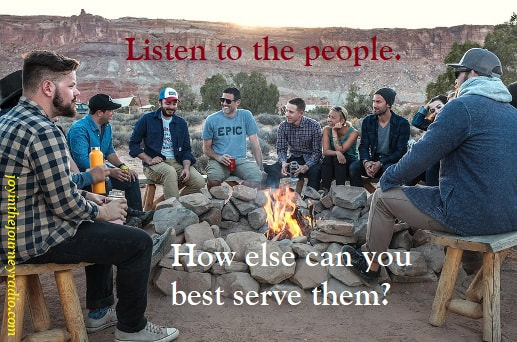
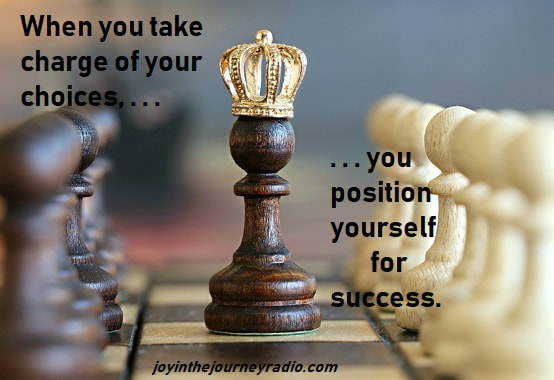
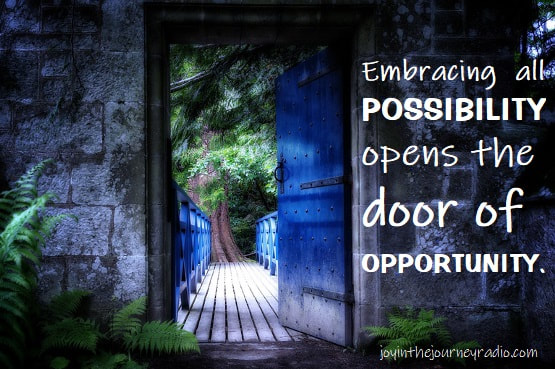
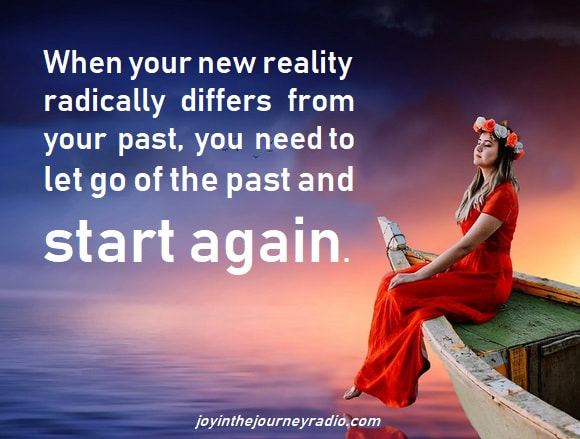
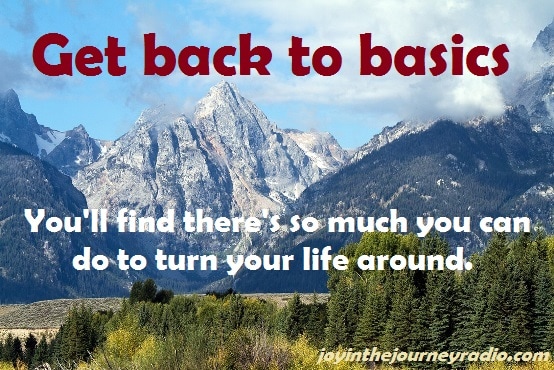
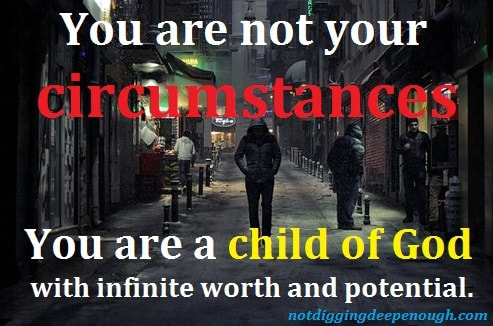

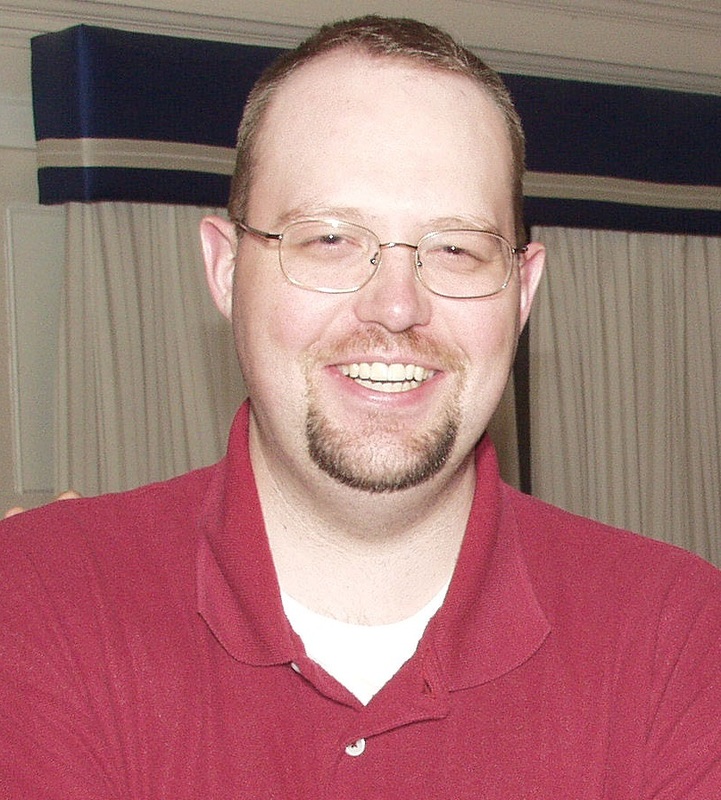
 RSS Feed
RSS Feed